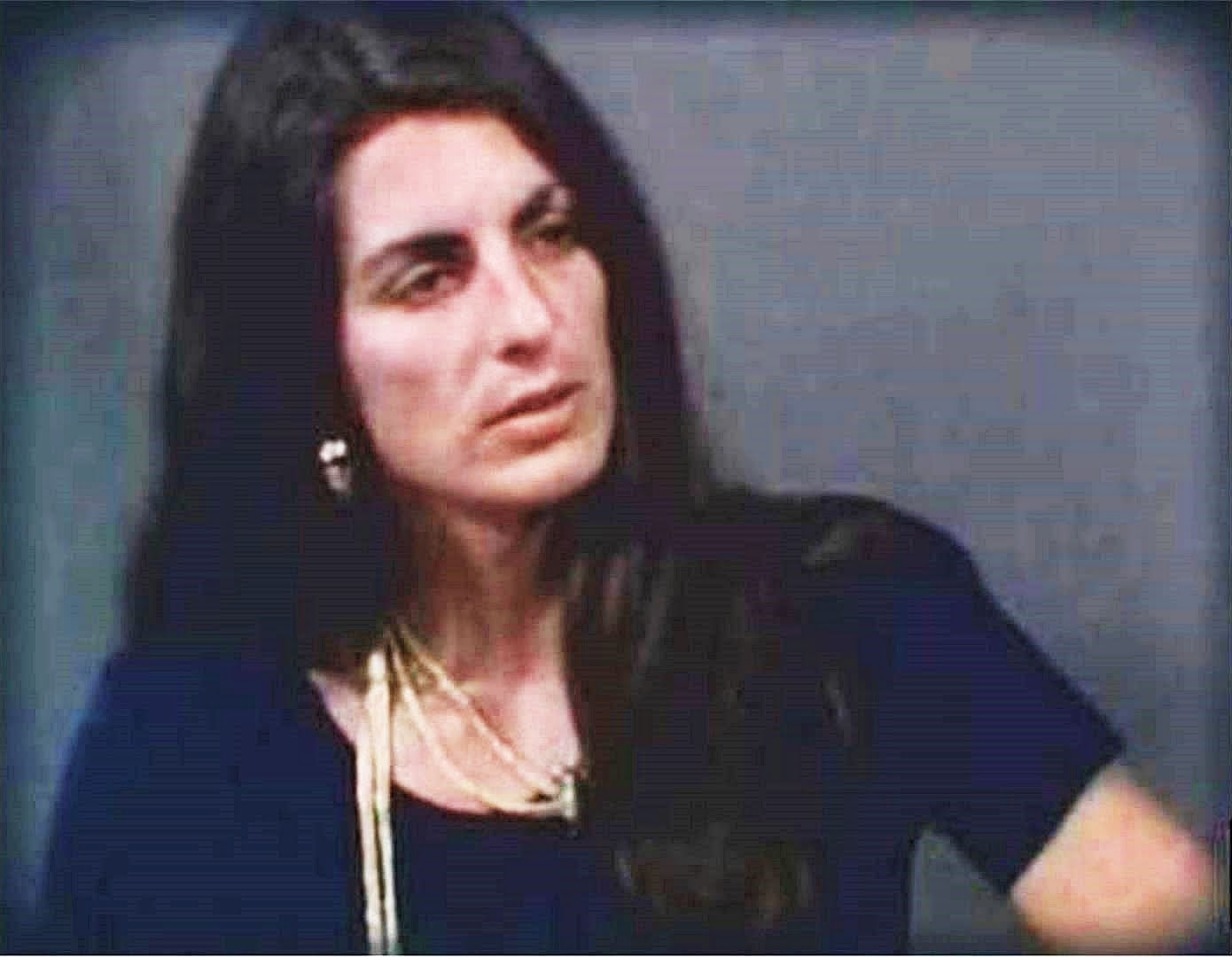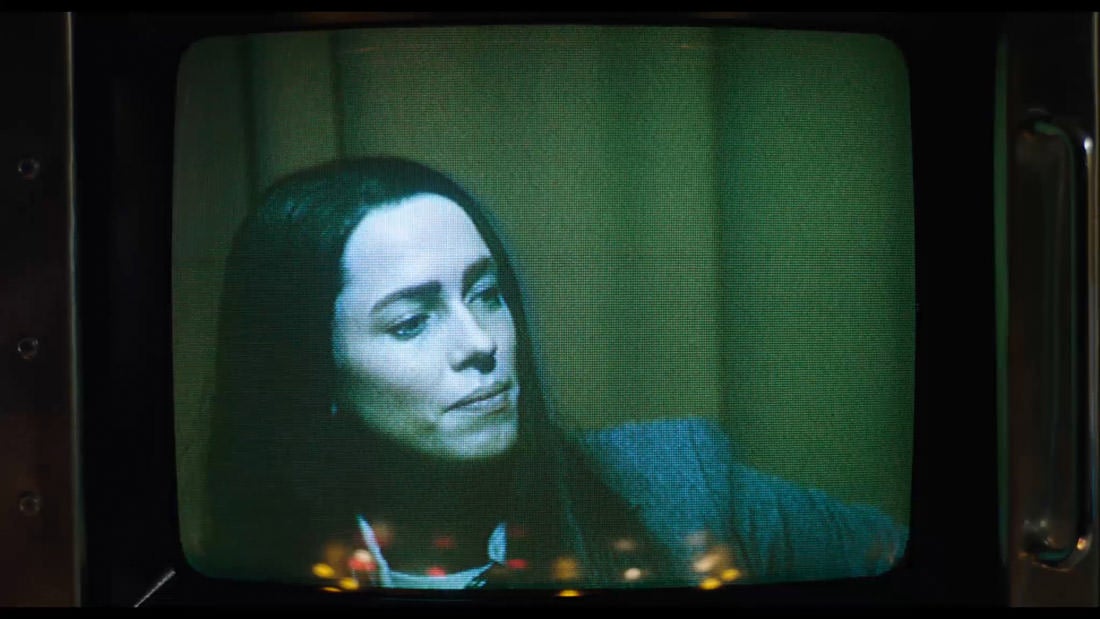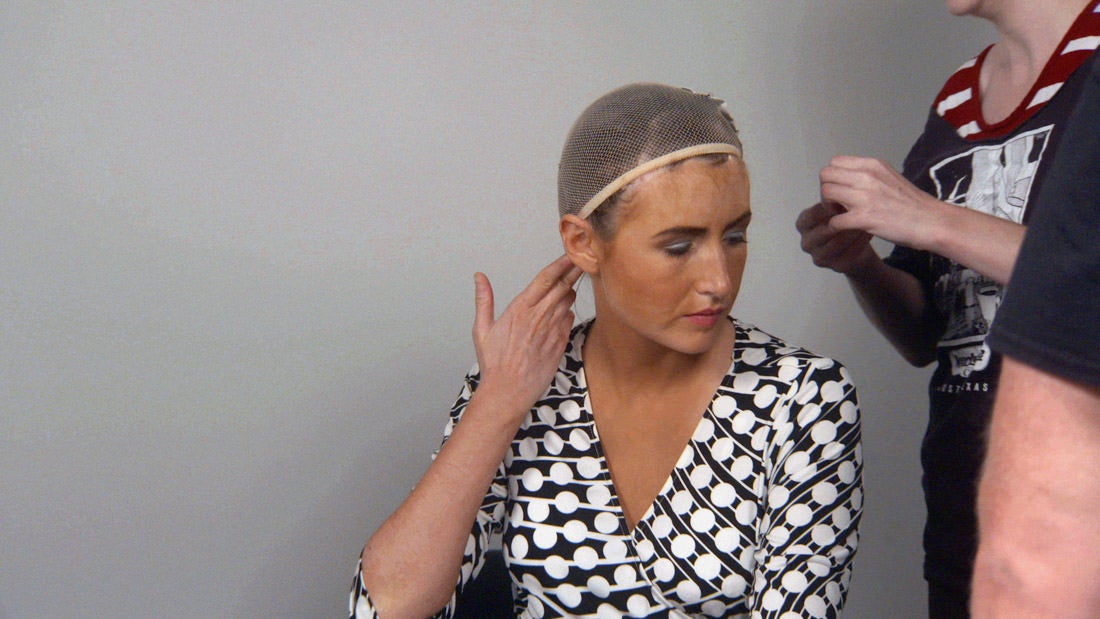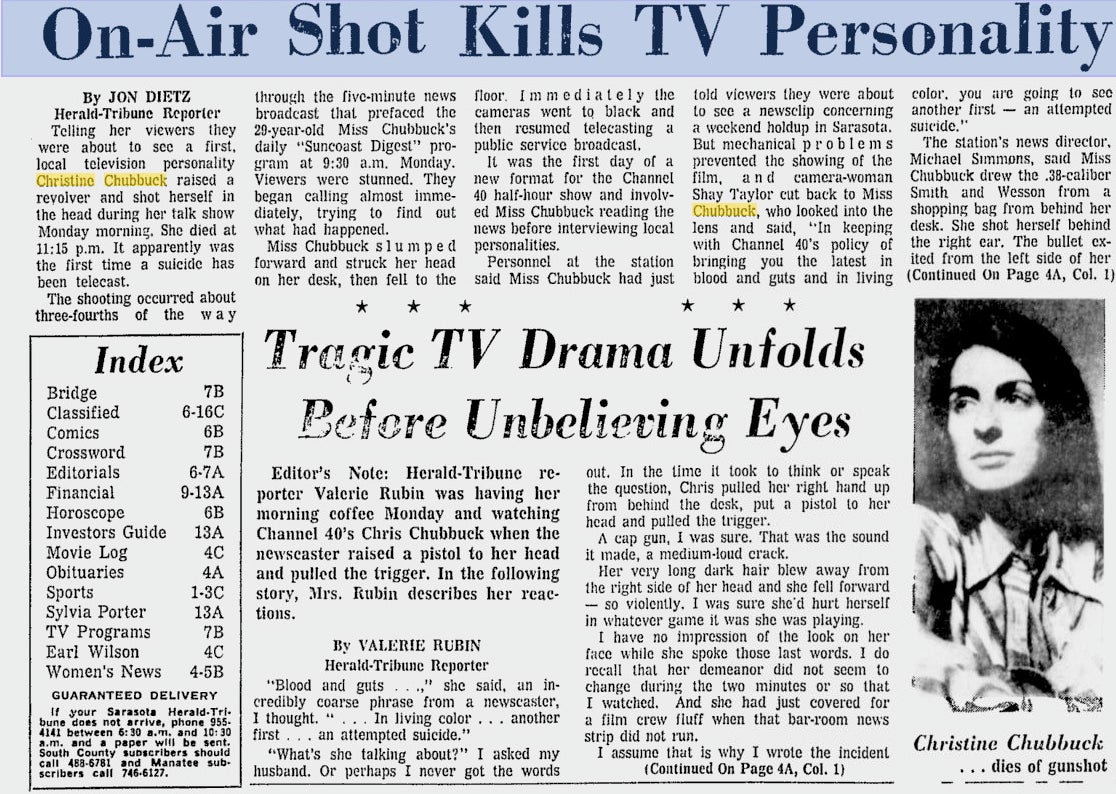Christine Chubbuck: True story of televised suicide behind two of this year’s biggest Sundance films
The host, who was suffering from depression, wrote a script for a news report announcing her death

Your support helps us to tell the story
From reproductive rights to climate change to Big Tech, The Independent is on the ground when the story is developing. Whether it's investigating the financials of Elon Musk's pro-Trump PAC or producing our latest documentary, 'The A Word', which shines a light on the American women fighting for reproductive rights, we know how important it is to parse out the facts from the messaging.
At such a critical moment in US history, we need reporters on the ground. Your donation allows us to keep sending journalists to speak to both sides of the story.
The Independent is trusted by Americans across the entire political spectrum. And unlike many other quality news outlets, we choose not to lock Americans out of our reporting and analysis with paywalls. We believe quality journalism should be available to everyone, paid for by those who can afford it.
Your support makes all the difference.Biopics frequently seem to be released in pairs - last year there were rival Steve Jobs movies and this year two premiere at Sundance about Florida news reporter and TV host Christine Chubbuck.
The first is a straight-forward biopic, Christine, which sees Rebecca Hall (The Prestige) play Chubbuck, while the second is more meta, with Kate Plays Christine charting actor Kaye Lyn Sheil’s (House of Cards) preparation for playing Christine in an upcoming movie (which does’t exist, but the film has still been classed as a documentary).
Chubbuck’s story is an obvious choice for an exploration on the big screen, given her intentionally dramatic and even cinematic method of suicide, which inspired the screenplay for 1976 news anchor meltdown movie, Network.
The morning of July 15, 1974
Arriving to work at WXLT Channel 40, a station with a growing tendency to report gruesome news stories (something Christne apparently “detested”), Chubbuck confused her colleagues by starting her Suncoast Digest show with a news bulletin.
She covered three national news stories and a shooting at a local bar. When the film reel for the latter jammed, the camera cut back to Chubbuck, who looked into the lens and said: “In keeping with Channel 40’s policy of bringing you the latest in blood and guts and in living colour, you are going to see another first - an attempted suicide.”
According to the Sarasota Herald-Tribune, Christine promptly drew a .38 caliber Smith and Wesson revolver from a shopping bag behind her desk and shot herself behind her right ear, falling forward and striking her head on the desk before falling to the floor.


WXLT’s technical director quickly faded to black, and a standard public service announcement was broadcast, followed by a movie.
She reportedly said “attempted suicide” to cover herself in case she was not successful, and this was not the only premeditated element to her death.
News director Mike Simmons would later find a complete script for the day’s show among her papers, which included a report of her death to be read out by whichever reporter took her seat.
“She had written something like 'TV 40 news personality Christine Chubbuck shot herself in a live broadcast this morning on a Channel 40 talk program. She was rushed to Sarasota Memorial Hospital, where she remains in critical condition,'” he was quoted as saying by The Dallas Morning News, and indeed ‘critical’ was how her condition was reported at the nearby hospital, where she died in the evening.
Chubbuck, who is thought to have killed herself due to personal rather than professional problems - in spite of her final words - purchased a pistol eight days before the broadcast.

“I asked her why she thought she needed a gun,” fellow Channel 40 news reporter Rob Smith explained.
“She replied: ‘Well Rob, I had this really nifty idea, I thought I’d bring it to work and blow myself away during my talk show.'”
The broadcast was taped as per Chubbuck’s request, according to the Tribune, but the only copy of the tape - a continuing object of fascination among the more morbid parts of the internet - was seized by Sarasota County Sheriff’s Office as evidence, before later being passed onto Chubbuck’s family.
Chubbuck had been suffering from depression and suicidal tendencies for a long time, with her mother later summarising of her death: “Her suicide was simply because her personal life was not enough”.
If you are suffering from depression, get help by calling the Samaritans on 116 123.
Join our commenting forum
Join thought-provoking conversations, follow other Independent readers and see their replies
Comments